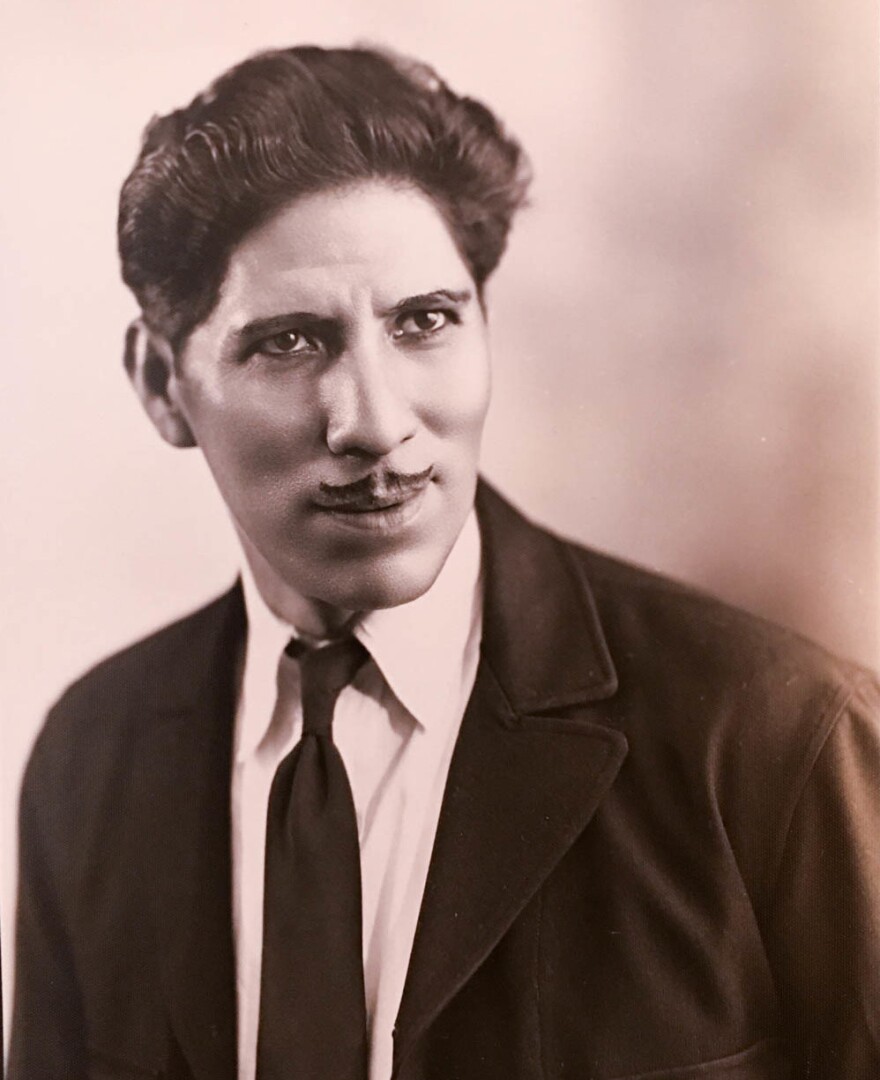Although sisters Carmencristina Moreno and Rosemary Selzer were born 14 years apart, they both have vivid memories of growing up surrounded by music.
Their parents were Mexican folk music stars, known as Los Moreno, in Los Angeles between the 1930s and '50s.
The sisters, Carmencristina, now 81, and Rosemary, 67, came to StoryCorps to remember their late father, Luis M. Moreno, and the bittersweet legacy he left behind.

"There was always music in the house," Rosemary said. "Dad composed his own songs. He would sit in the back seat of the white station wagon that we used to call La Paloma with a pad and a pencil. He would say, 'Well, this is the only place I can get some peace and quiet to write.' "
Their father would scribble lyrics onto whatever paper he could find, however unconventional.
"No blank cardboard was safe," said Carmencristina.
When she was around 13 years old, Rosemary remembered her parents playing for money in cantinas on weekends, as the audience stuffed dollar bills into their guitars.
"They would come home and I would help them pull the money out of the guitars," she said. "I can still remember the sound the dollar bills made as they would go through the strings."
In the 1940s, music promoters invited their parents to tour South America as a duo. Carmencristina was a young child, and Rosemary wasn't yet born.
But Rosemary said her dad, who was orphaned at an early age, never wanted to be away from his daughter for too long.
"He wanted to make sure his children didn't suffer as he did," she said.
When their parents had a lull in their music career, Carmencristina said her dad picked up another job as a farm irrigator.
"Daddy would come home with burst blisters. And I think how hard it must have been for him because he had to do what it took to feed his family," she said. "I admired my father tremendously."
Their father Luis died in 1974. Rosemary wondered where her dad's music career could've gone if he hadn't sold his music to support his family.
"He composed approximately 300 songs in his lifetime, but he gave away the songs or sold them for $50 a song," she said. "So, I could imagine that as he got older and he hears his music on the radio and all of these people getting famous — that must have been gut wrenching for him."
Rosemary tries not to listen to her dad's songs on the radio these days because, she said, "it makes me so emotional."
"Yeah, some songs are just too personal," Carmencristina said.
She asked her sister how she thinks their father would want to be remembered.
"Aside from being a good family man — I mean, that goes without saying — but he wanted people to know that he composed music, beautiful music. That's how I think he'd want to be remembered," Rosemary said.
Audio produced for Morning Edition by Jo Corona.
StoryCorps is a national nonprofit that gives people the chance to interview friends and loved ones about their lives. These conversations are archived at the American Folklife Center at the Library of Congress, allowing participants to leave a legacy for future generations. Learn more, including how to interview someone in your life, at StoryCorps.org.
Copyright 2021 NPR. To see more, visit https://www.npr.org. 9(MDAyNDY5ODMwMDEyMjg3NjMzMTE1ZjE2MA001))




